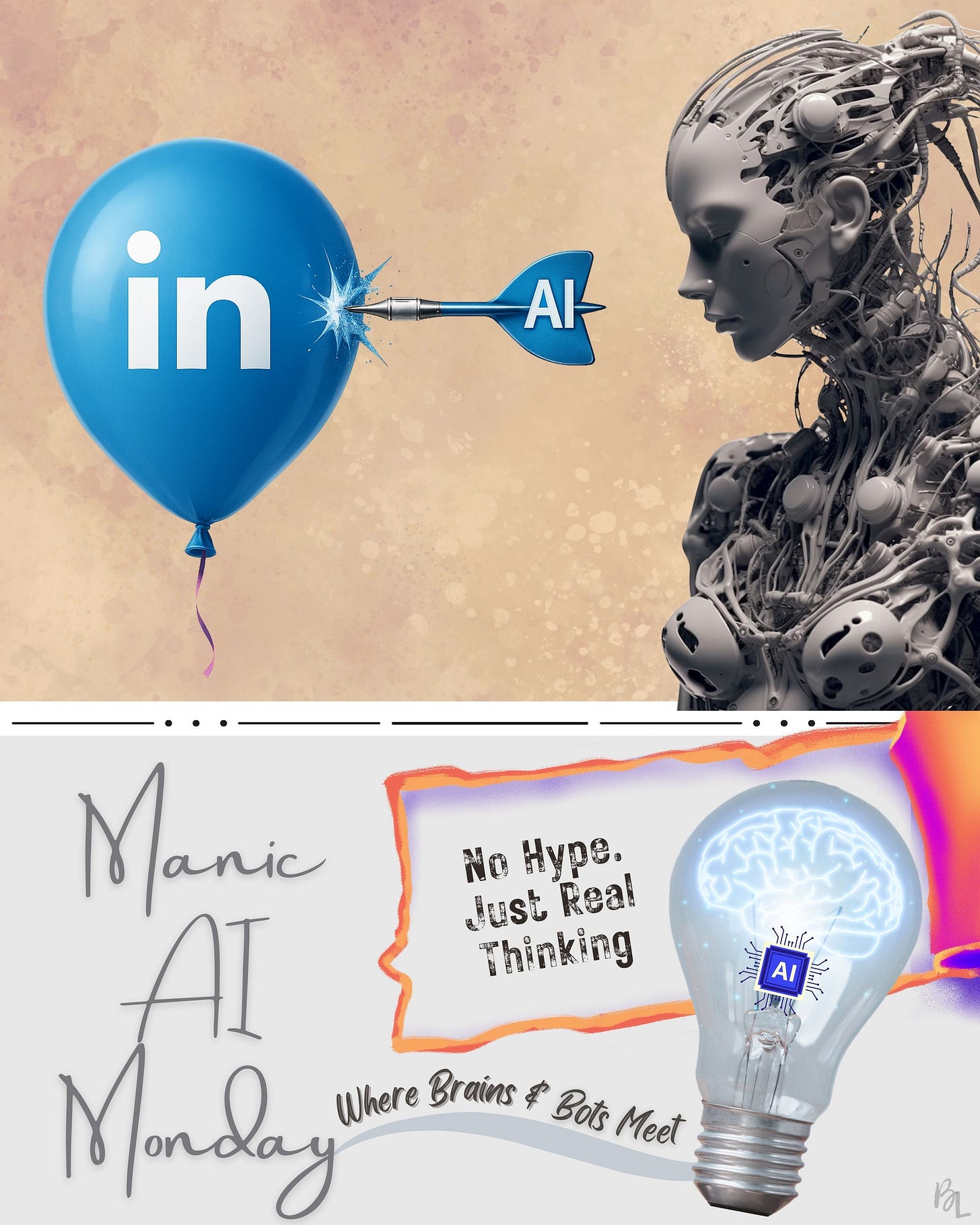OpenAI Just Crashed LinkedIn’s Party
Parents cling to college — will employers move to ChatGPT certifications instead?

I write about leadership, exploring AI, and why teaching critical thinking about it is more important than ever.
Please hit the heart ❤️, restack 🔄, subscribe 📨, and all that jazz to help spread the word!
🙌
Universities are bleeding money. In my own state, the ban on international students is projected to drain $230 million from the economy this year alone. And that’s just one state. Across the country, the Trump administration has frozen millions of dollars in federal research funding, sparking lawsuits from schools like Harvard.
It’s been a hot mess, and for many campuses, the financial fallout is already hitting enrollment, staff, and programs. A new report from the Association of International Educators estimates the U.S. could lose approximately $7 billion in revenue and 60,000 jobs in the next year from the 15% drop in international students.
Mix this in with the questions students and parents have been asking about whether a degree is worth it anymore, and higher ed has a serious problem to deal with. Newsweek just dropped an article titled: It’s the Worst Time to Be a College Graduate in Years.
When the floor cracks
Against that backdrop, OpenAI just announced plans for an AI-powered hiring platform to compete with LinkedIn. Now, personally, I'm all for anything that could potentially come in and disrupt that platform because I think it's in serious need of an overhaul. On the surface, it looks like it's about matching workers with jobs.
But tucked inside is something more disruptive: a built-in certification system that promises to train and validate millions of AI-ready workers by 2030. They will partner with OpenAI Academy to provide certifications and educational support. They are already creating content for education, non-profits, and government.
I took a peek at the higher education video where they provide info for students and faculty. It’s essentially an introductory video on how to use ChatGPT in colleges. I predict before long an entire library will be housed there to select from.
And that’s where the tension really shows. Because when employers start asking what ChatGPT has certified you can do, instead of where you went to college, the value of a degree shifts fast. It’s moving from colleges to algorithms. Just as it moved from factory work and the trades to a college education.
The backup that wasn’t
I advised students for nearly 15 years, and I watched the messaging swing hard. Coming of age in the 90s, it was “everybody needs to go to college.” Fast forward 20 years and I had a student in my office who really wanted to be a mechanic but was majoring in psychology. When I asked why he wasn’t enrolled in the certification program at the local community college, he said psychology was his “backup.”
The reality was the opposite.
He probably would’ve earned more, faster, with a mechanic’s certification than he ever would with a psychology major— which is essentially a starting point unless you go on for a master’s or PhD. But he had it in his head, and probably his parents did too, that attending a university was worth more. In truth, a skilled mechanic would have been in far greater demand, and the path to get there would’ve cost much less.
Now, more students than ever before are looking at the trades. A recent survey found that nearly half of teens say college isn’t their most likely next step, with only 45% planning on two- or four-year programs. At the same time, 38% are considering trade schools, apprenticeships, or bootcamps
We’ve gone so far in the university direction that we’re facing real shortages in vocational fields. With AI moving into so many industries, the trades are going to feel it less. You’re always going to need a plumber, an electrician, or a carpenter to build your house, unless we get to the point where robots are framing walls and wiring outlets.
Parents caught in the middle
The script is unraveling in real time. Families are asking if a degree is worth the debt. Universities are hemorrhaging enrollment and revenue. And OpenAI just put itself in the middle of the pipeline, promising a cheaper, faster stamp of employability.
That’s the parent problem. When the gatekeepers of opportunity shift from universities to algorithms, it’s not just students who have to rethink their choices. It’s parents, too because they are the ones who’ve been told for decades that the only safe bet was college.
Asked what jobs will stand up to AI, Dr. Geoffrey Hinton (often called the Godfather of AI) didn’t point to a college degree. He said plumbing. So if the trades aren’t where you see yourself, then learning AI and understanding how it works won’t be optional.


Bette, this is such an interesting read. You are spot on that universities are struggling and that students (followed soon by parents) are questioning whether a degree is worth it. And I love how you highlight the trades. Some of those jobs are more future-proof than we give them credit for.
That said, while AI can automate tasks, it can't replace the uniquely human skills that a university education is designed to foster, e.g., critical thinking, problem-solving, the ability to navigate complex situations. At the moment, AI can teach you how to do something, but it’s less clear it can teach you why or give you the bigger-picture thinking employers need. Maybe this will change, I am not sure. In any case, the conversation itself is definitely overdue.
This is inevitable and scary! We need fast action on the end of policy makers to shape the narrative on how AI education can be integrated into mainstream professions so that it best serves them otherwise there is going to be more heartaches and confusion